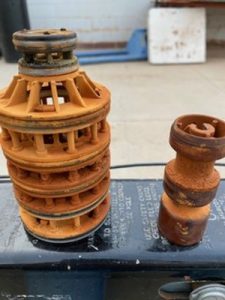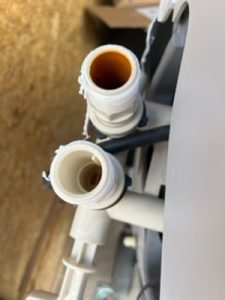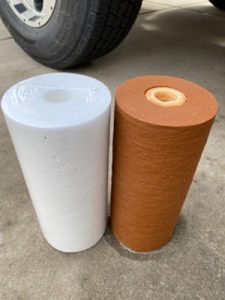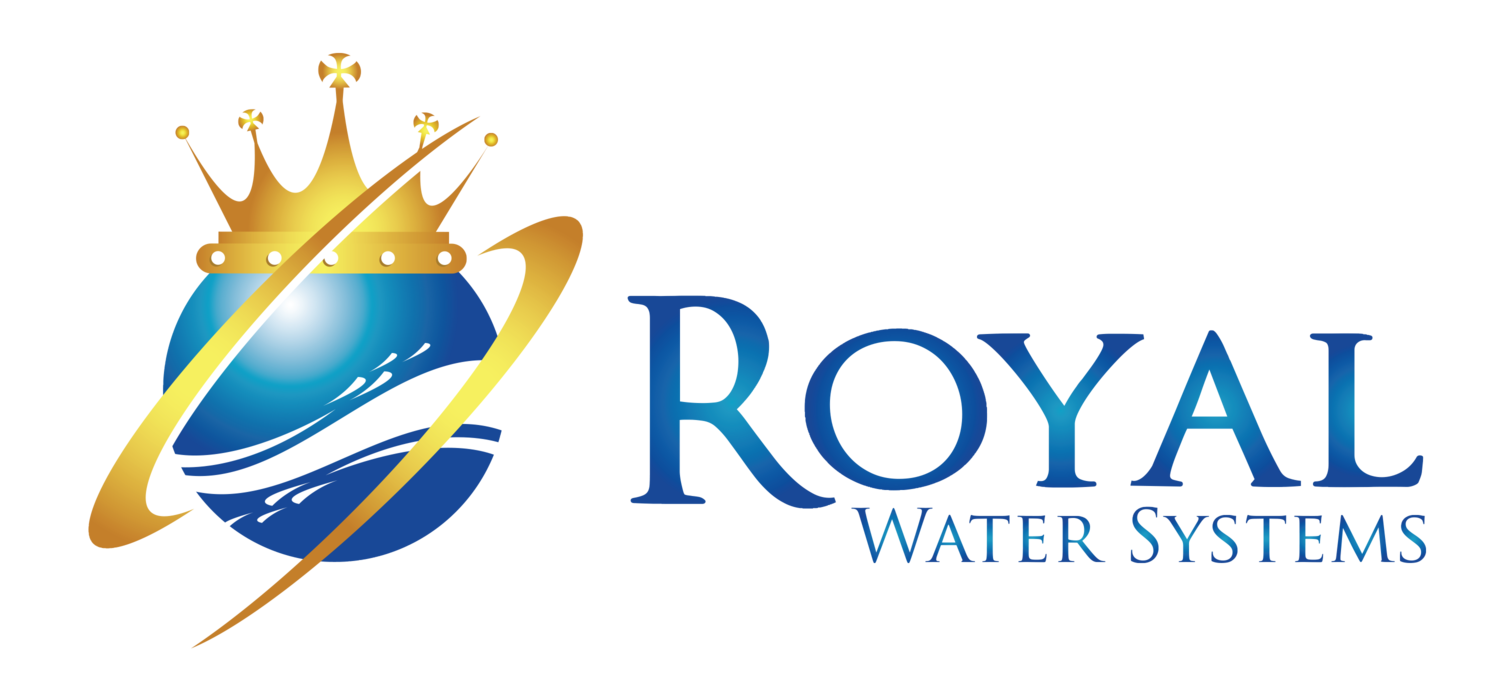A lot of Utah homeowners ask me if it is necessary to add a sediment filter to their water softener. 
Here is the quick low-down on that: It’s true that a water softener will collect a lot of sediment that may be in your water supply and then get rid of it when the system backwashes. The pic below shows the dirty, incoming water supply to the softener and the fairly clean outgoing water which means that all that dirt over the short lifespan of this big-box store water softener was either backwashed to the drain or remained in the water softener plugging it up. It’s never a bad idea to filter your water before it gets to the water softener because that dirt and sediment can be destructive to pistons, seals and o-rings inside the control valve of the water softener causing costly repairs or an early replacement of the system.
Here is a couple of tips as well – I’ve noticed that Utah homes at the end of a street or in a cul-de-sac usually have quite a bit more sediment in the water and I can only assume that it is because those homes draw their water from the end of the main water line in the street which is probably where all the sediment, dirt and junk piles up. Secondly, the filter housings we use will accept either a pleated filter for sediment or a carbon block filter. Carbon blocks are a bit more costly, but will not only filter out the sediment but the chlorine as well which aggravates skin rashes like eczema. If you are a family that has a bad sediment problem and suffers from eczema, you can kill two birds with one stone by adding a whole house filter to your home.


If you have questions or concerns about your water, please feel free to contact us.

